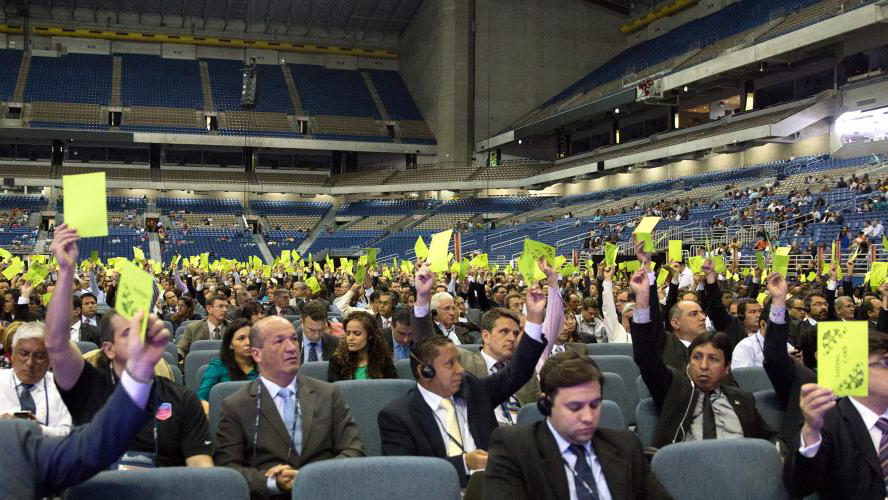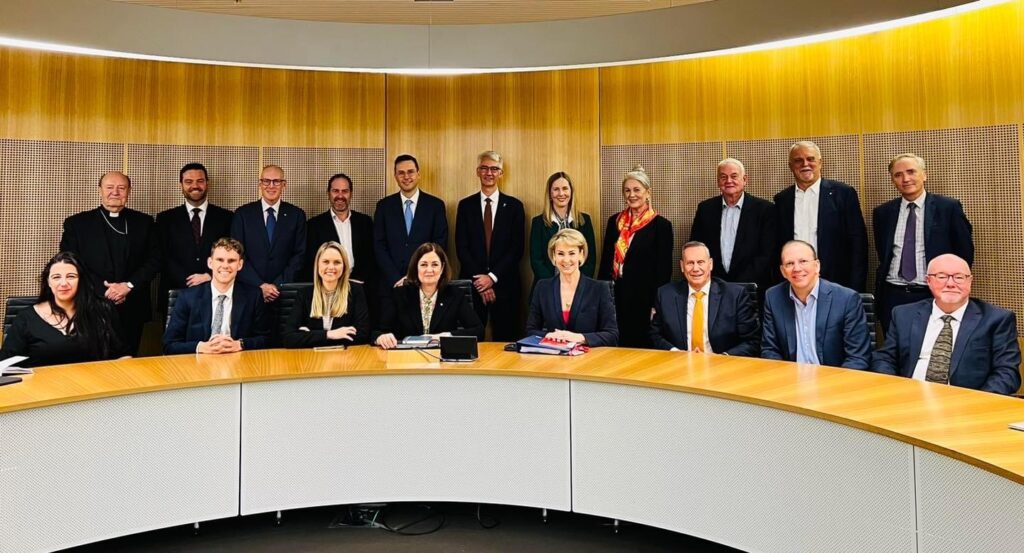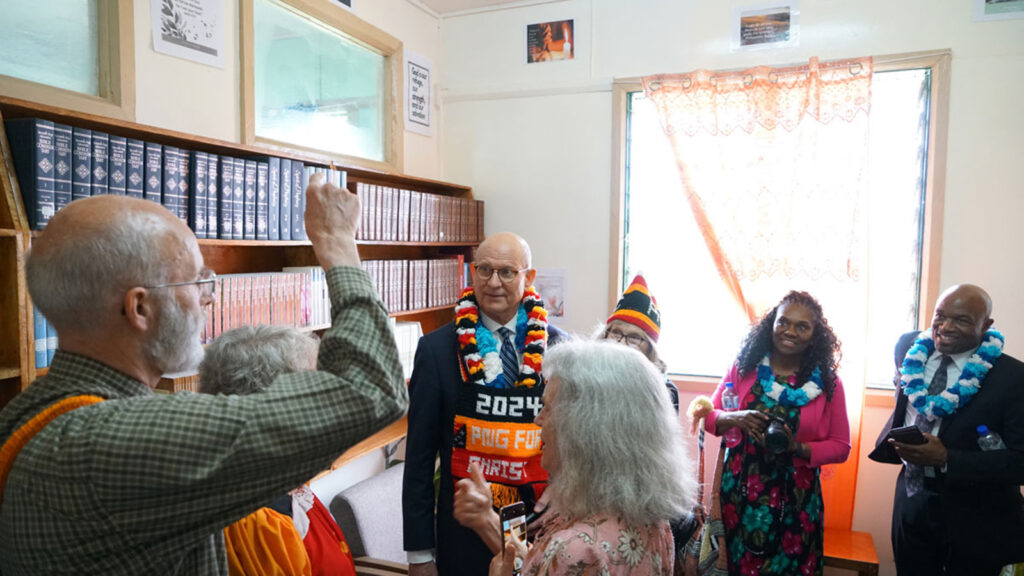For the second time in 10 months, members of the Executive Committee of the global Seventh-day Adventist Church have voted to postpone the quinquennial session of the denomination, originally scheduled for late June of 2020, due to challenges arising from the COVID-19 pandemic.
Members of the Executive Committee (EXCOM) from around the world attended the January 12, 2021 virtual Zoom session, where they listened to reports from world church administration, health officers of the church, logistics coordinators, and legal counsel. Leaders discussed the feasibility of adhering to the planned business session dates of May 20-25, 2021 in Indianapolis, Indiana, United States, that had been previously approved by the same body.
The persistence of the deadly global COVID-19 pandemic and its enduring impacts on public health, travel, and the availability of international visas persuaded the international body to postpone the session until June 6-11, 2022, also in Indianapolis. The new plan voted by church leaders and laypersons now postpones the date for the denomination’s quinquennial business session for nearly two years from its originally scheduled dates, as allowed by the Adventist Church’s constitution.
General Conference (GC) president Ted Wilson, who chaired the EXCOM committee, began the two-hour meeting by outlining the process of data collection and discussion that brought the recommendations to the governing body of the church. “A team of workers has been working diligently,” Pastor Wilson said. “We have been carefully reviewing things, especially with those in session management and planning.”
Wilson added that recommendations are coming from a consensus approach from various groups, including world division officers, health professionals, Adventist Risk Management, the Office of General Counsel, and other Adventist Church leaders. “This is not a recommendation directly coming from the three senior officers of the GC,” he said. “This is something that has come from a plethora of information and counsellors.”
Current Challenges
Pastor Wilson introduced those who would provide background and context to the current and projected challenges posed by the ongoing pandemic.
Dr Peter Landless, director of Health Ministries for the global Adventist Church, shared current COVID-19 statistics and concerns of moving forward with such a large gathering. Given the rising infection numbers, along with a new, more infectious and aggressive strain, Dr Landless said the Health Ministries department had to recommend delaying the GC Session.
“We’ve been consulting with international experts, and taking into account the needs and concerns. The GC Health Ministries department believes it is prudent and practical stewardship to postpone the GC Session to 2022, given this difficult time,” Dr Landless said. “And it is with a heavy heart one makes this recommendation. However, it is a recommendation that comes because it appears there is no alternative.”
GC meeting planner Sheri Clemmer outlined some of the current challenges to a large meeting of delegates from around the world. She mentioned visitor visa difficulties and quarantine requirements, especially for those who use public transportation and transportation hubs. She also explained standard COVID protocols surrounding mass gatherings in Indianapolis.
GT Ng, executive secretary of the global Adventist Church, reported data collected from the division leadership about the likelihood of delegates being able to attend the May 2021 GC Session. Major challenges to achieving a large portion of delegates that were expressed by division leadership included travel bans, quarantine restrictions, and problems obtaining visas to the United States. The General Conference constitution does not currently allow for electronic participation at a General Conference Session.
Tim Northrop, president of Adventist Risk Management, outlined various liability risks that could follow if EXCOM voted to not delay the 2021 Session.
“We have an important meeting for our church. What we have heard is that there are potential exposures and potential risks,” Mr Northrop said. “We have also heard our constitution allows us to weigh those risks and to consider moving the meeting to a later date. This business continuity plan we have as leaders is important. It allows us to be more nimble and allows us to continue the ministry of our church.”
Following the presentations and discussion, the recommendation to move the dates of the General Conference to June 2022 was put to a vote by electronic polling. The motion passed with a vote of 185 to 9.
Following the vote, Dr Landless concluded the discussion with a serious observation: “We have been brought to this point, not because it is something we would like to do, but something we have to do.”






